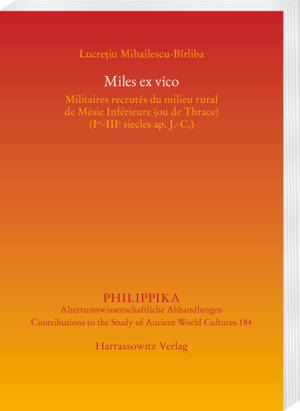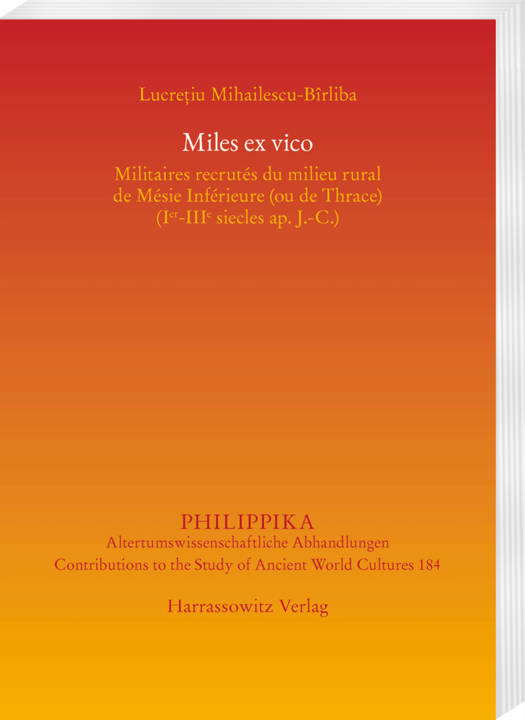
- Afhalen na 1 uur in een winkel met voorraad
- Gratis thuislevering in België vanaf € 30
- Ruim aanbod met 7 miljoen producten
- Afhalen na 1 uur in een winkel met voorraad
- Gratis thuislevering in België vanaf € 30
- Ruim aanbod met 7 miljoen producten
Zoeken
€ 76,95
+ 153 punten
Omschrijving
The increasing number of epigraphic sources, and particularly of military diplomas, has revealed that the soldiers recruited from rural areas of the Roman provinces played a major role in forming the auxiliary units, the pretorian fleets and cohorts. With Miles ex vico Lucre iu Bîrliba offers an extended study on the origin, families and mobility of the soldiers recruited especially from the Roman provinces Moesia Inferior. In some cases, these soldiers could have originated from Thrace, considering their onomastics and the unknown location of the military diplomas. Bîrliba tries to respond to several questions, such as: Which are the recruitment moments of these soldiers? Is it possible to distinguish between a state policy of recruitment for the province(s) in question or a general pattern for the entire Empire? Which mobility routes are used? Can the sources realistically provide the proportion of veterans who return home and those who stay in the province of their military duty? What villages represent the main sources of enlistment? Which is the legal status of their wives and children when the soldiers become veterans? And, last but not least, is it possible to identify a contribution to Romanization by the soldiers recruited from the rural areas?Text in French Language
Specificaties
Betrokkenen
- Auteur(s):
- Uitgeverij:
Inhoud
- Taal:
- Engels, Frans
- Reeks:
- Reeksnummer:
- nr. 184
Eigenschappen
- Productcode (EAN):
- 9783447123570
- Verschijningsdatum:
- 16/07/2025
- Uitvoering:
- Paperback
- Afmetingen:
- 170 mm x 240 mm

Alleen bij Standaard Boekhandel
+ 153 punten op je klantenkaart van Standaard Boekhandel
Beoordelingen
We publiceren alleen reviews die voldoen aan de voorwaarden voor reviews. Bekijk onze voorwaarden voor reviews.











